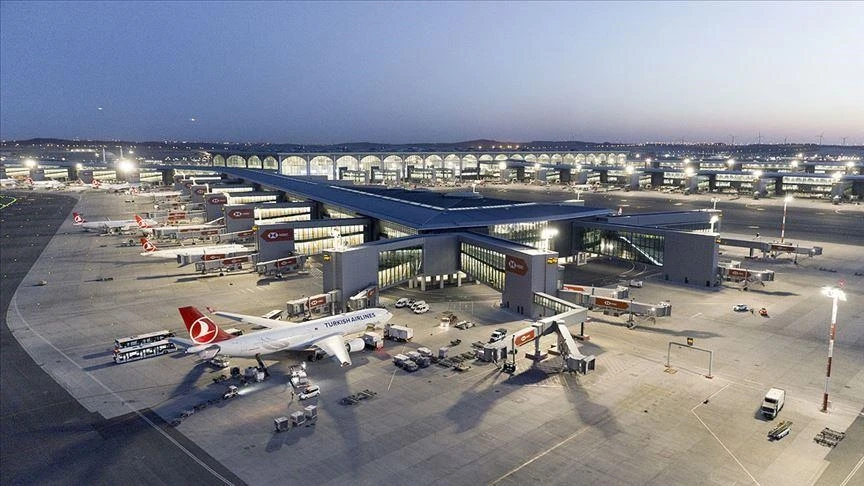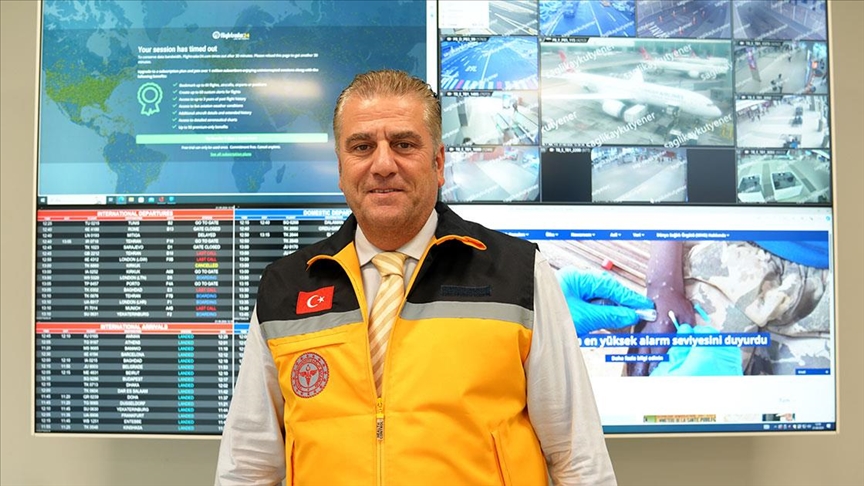Istanbul Airport increases mpox monitoring
 An aerial view of the apron where the Turkish Airlines aircraft is located at Istanbul Airport, İstanbul, Türkiye, Jan. 1, 2023. (AA Photo)
An aerial view of the apron where the Turkish Airlines aircraft is located at Istanbul Airport, İstanbul, Türkiye, Jan. 1, 2023. (AA Photo)
Health authorities at Istanbul Airport have ramped up monitoring efforts to prevent the spread of the mpox virus, formerly known as monkeypox, particularly targeting flights from the Democratic Republic of Congo (DRC) and 11 other African countries where the virus is prevalent.
The move follows the World Health Organization’s (WHO) declaration of the mpox virus as a Public Health Emergency of International Concern (PHEIC).
Increased surveillance and isolation protocols
The Turkish General Directorate of Border and Coastal Health has implemented enhanced screening measures at Istanbul Airport, focusing on passengers arriving from the DRC and neighboring countries, including Burundi, Central African Republic, Congo, Cameroon, Ghana, Liberia, Nigeria, Rwanda, Kenya, Ivory Coast, and South Africa.
Dr. Aykut Yener Kavak, chief physician of Istanbul Airport, detailed the heightened protocols, explaining that health teams are on duty 24/7, rigorously screening passengers from the affected regions. “We are conducting inquiries directly at the aircraft doors for flights from the Democratic Republic of Congo, questioning passengers about any symptoms such as rashes or fever,” Kavak stated.

Response to suspected cases
Although no Mpox cases have been detected at Istanbul Airport so far, Dr. Kavak confirmed that a few passengers have been isolated and examined as a precaution.
“These passengers were allowed to continue their journey after it was determined they did not have mpox,” he added.
Criteria for mpox diagnosis
The primary criterion for identifying potential mpox cases is the presence of skin rashes. Dr. Kavak explained that the medical teams also assess passengers’ travel history, fever, infection signs, and swollen lymph nodes.
“Suspicious cases are isolated in designated areas at the airport, where they undergo further examination by our medical staff,” he noted. Passengers showing significant symptoms may be transferred to pre-designated hospitals for more comprehensive evaluation.
During a briefing with aviation stakeholders, Dr. Kavak emphasized that while the virus is not airborne, reducing the risk of transmission is critical. “Avoiding close contact with infected individuals and refraining from touching lesions with bare hands are key preventive measures,” he advised.
Dr. Kavak also dispelled rumors circulating on social media about mandatory mask-wearing and gloves on flights, clarifying that such measures are not required at the airport or onboard. However, cleaning staff are advised to use gloves when handling potentially contaminated areas.
The WHO’s latest data indicates that the mpox virus typically resolves within two to four weeks and that individuals with weakened immune systems are at greater risk. Vaccination efforts in affected regions have intensified, with the smallpox vaccine reported to provide 95% protection against mpox.



